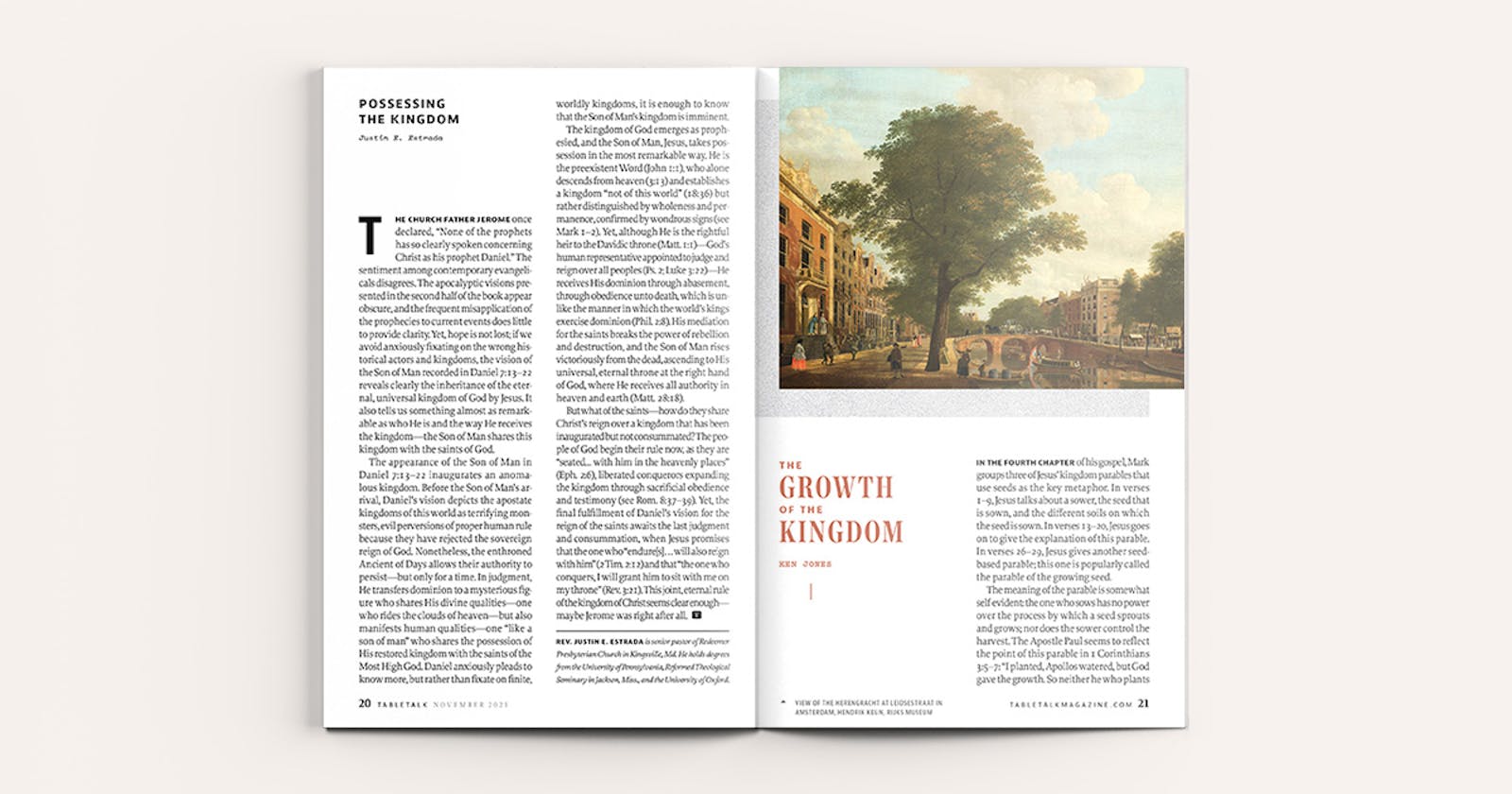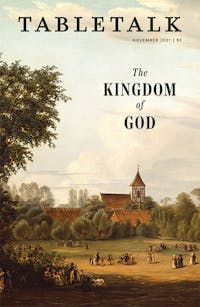
Request your free, three-month trial to Tabletalk magazine. You’ll receive the print issue monthly and gain immediate digital access to decades of archives. This trial is risk-free. No credit card required.
Try Tabletalk NowAlready receive Tabletalk magazine every month?
Verify your email address to gain unlimited access.
In the fourth chapter of his gospel, Mark groups three of Jesus’ kingdom parables that use seeds as the key metaphor. In verses 1–9, Jesus talks about a sower, the seed that is sown, and the different soils on which the seed is sown. In verses 13–20, Jesus goes on to give the explanation of this parable. In verses 26–29, Jesus gives another seed-based parable; this one is popularly called the parable of the growing seed.
The meaning of the parable is somewhat self-evident: the one who sows has no power over the process by which a seed sprouts and grows; nor does the sower control the harvest. The Apostle Paul seems to reflect the point of this parable in 1 Corinthians 3:5–7: “I planted, Apollos watered, but God gave the growth. So neither he who plants nor he who waters is anything, but only God who gives the growth.” God’s kingdom unfolds in this world through the ministry of the Word (seed sowing and the watering of the sown seed). As Paul rightly notes, planting and watering come through human instruments (see also Eph. 4:15–16), but God is the efficient cause of any fruit that grows.

In Mark 4:30–32, we find the third seed-based parable of the chapter. Jesus asks, “With what can we compare the kingdom of God, or what parable shall we use for it?” He goes on to say that it is like a grain of mustard, which is very small. The common takeaway from this parable is that, like the mustard seed that gradually becomes something larger, the kingdom of God progresses from something small into something more grandiose and splendid. When we see the 120 gathered in the upper room after the ascension of Christ and then see how the number has grown to include men and women from every tongue, tribe, and nation, surely we can see that the mustard seed has become larger.
But in addition to referring to the gradual growth of the kingdom, maybe Jesus is making another point here. After all, His point of reference is a mustard seed. One observer notes: “Where Jesus lived, mustard was prolific like a common and sturdy weed. It could pop up anywhere and start multiplying.” Furthermore, the mustard seed grows into a shrub—not a mighty oak tree, but a shrub (a sturdy and perhaps quite dense shrub, but a shrub nonetheless). In fact, maybe Paul’s words in 1 Corinthians 1:26 are a good insight into this parable: “For consider your calling, brothers: not many of you were wise according to worldly standards.” Not only is the growth of the kingdom gradual, but according to worldly standards it may not look like growth at all. Paul goes on to say, “God chose what is low and despised in the world, even things that are not, to bring to nothing things that are, so that no human being might boast in the presence of God” (vv. 28–29).
Maybe this parable speaks to our tendency to define growth and strength by worldly standards. Maybe the mustard seed and the shrub that it becomes are a reminder that the growth of the kingdom may not look like what we think.
